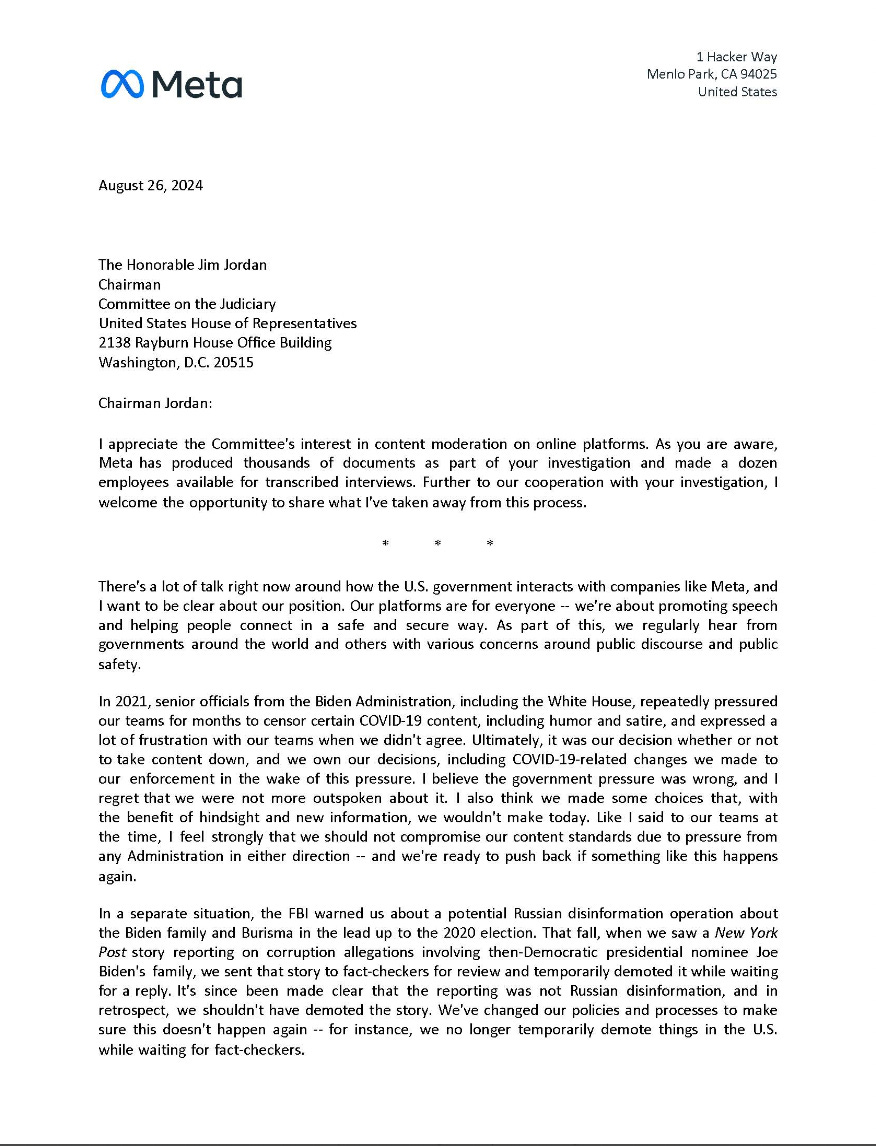In case you were wondering if the U.S. Government engages in censorship by proxy, read Zuckerberg's letter
Mark Zuckerberg, CEO of Meta/Facebook, has written a remarkable letter to the chairman of the Republican House Committee on the Judiciary, laying bare actions of the U.S. federal government which represent an extraordinary attack on the freedom of speech of U.S. citizens, and declaring that “we’re ready to push back if something like this happens again.”
The letter reveals three important facts:
First, the Biden administration “pressured” Facebook to censor content relating to Covid-19 posted by Facebook users.
Second, Facebook caved before this pressure, and censored Covid-related content.
Facebook suppressed the Hunter-Biden laptop story, based on an unconfirmed suspicion that it came from Russian “disinformation,” even though that suspicion later turned out to be false.
The political and constitutional significance of these revelations, straight from the mouth of the CEO of Facebook/Meta, should not be underestimated. Censorship by proxy is effectively censorship by another name. While direct government-sponsored censorship is prohibited by the First Amendment (“Congress shall make no law…abridging the freedom of speech, or of the press”), the U.S. government has found a way to get someone else to do its own dirty work.
Specifically, the Biden administration, behind closed doors, pushed a private company (actually, Facebook was just one of several companies pressured by the administration to censor content) with enormous leverage over the public sphere to censor on its behalf; once the dirty work was done, the U.S government could wash its hands of it, and claim that nobody’s First Amendment rights had been violated. After all, it was Facebook, Twitter, or Youtube, not the federal government, who actually “pulled the trigger.”
Unfortunately, on June 26th, a majority of the U.S. Supreme Court effectively gave constitutional permission to the federal government to continue to erode Americans’ first amendment rights by pressuring social media companies to censor their speech - provided they do not leave a clear trail of evidence connecting their interventions with the censorship of named individuals. For now, the only way to override that troubling decision is to get enough support in Congress and the Senate to pass a law legally prohibiting attempts by the government to press private actors to censor constitutionally protected speech.
Free subscribers, if you value this content, consider upgrading to a paid subscription which unlocks subscriber-exclusive posts, such as the one below:
The Safety Promised by Big Brother State Comes at a Very High Price
The modern State promises to make our lives safer and more comfortable, in return for general authority to regulate society, backed up by police force. But just how much authority should we be ceding to the State over our lives? In the long run, the more power we cede to State institutions and officials, the more they can leverage and expand their power over society.







